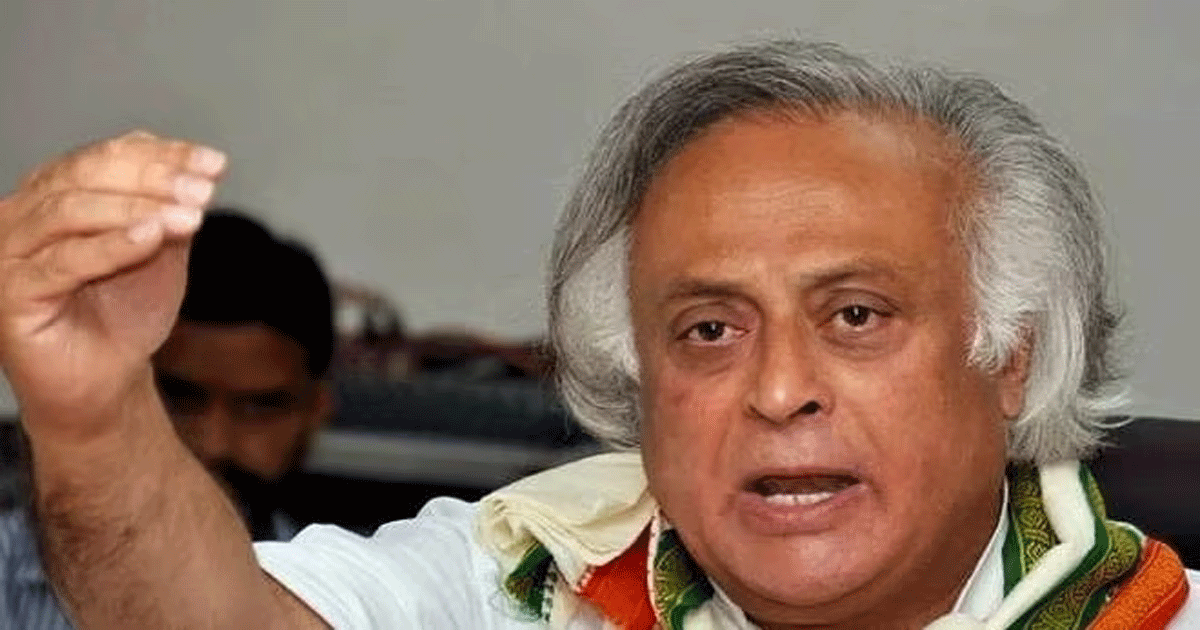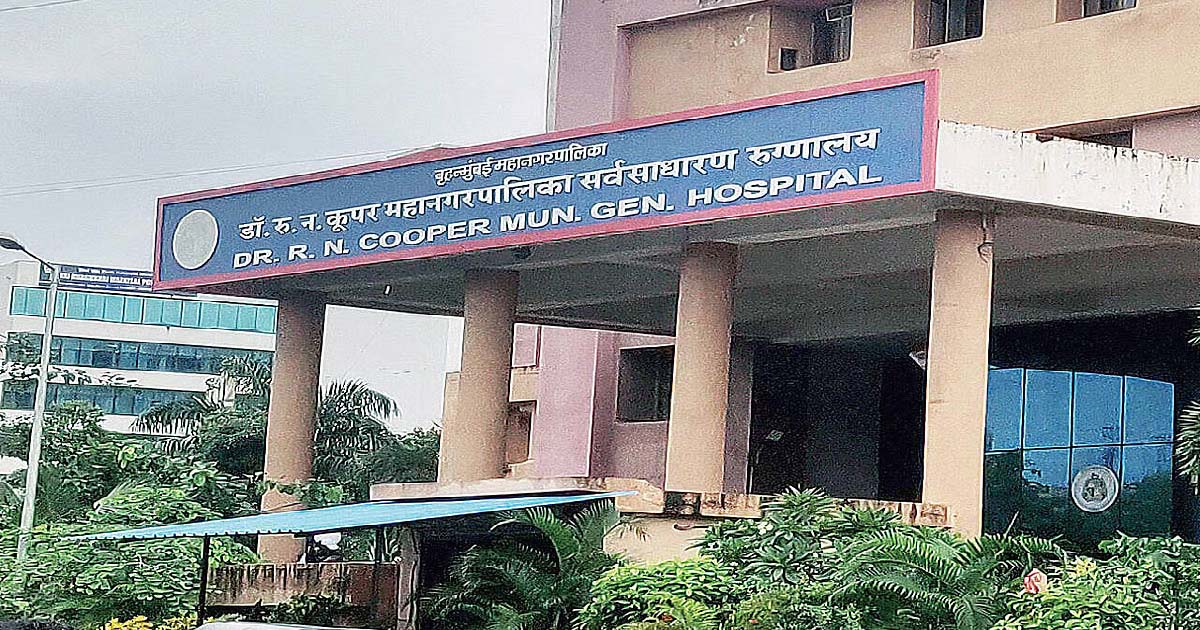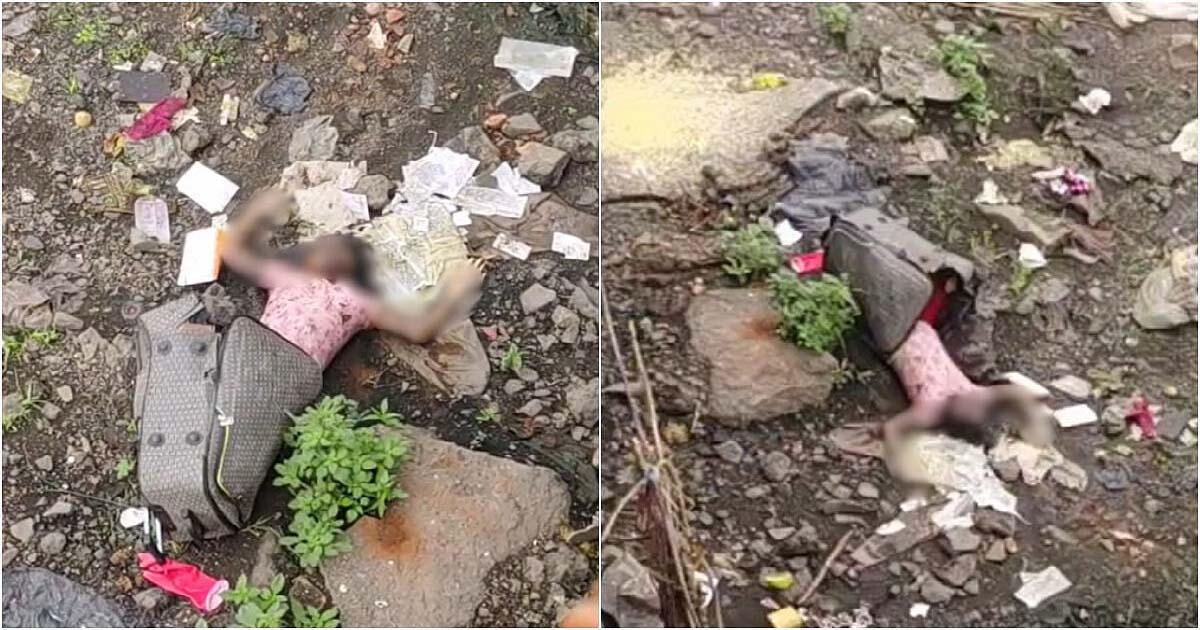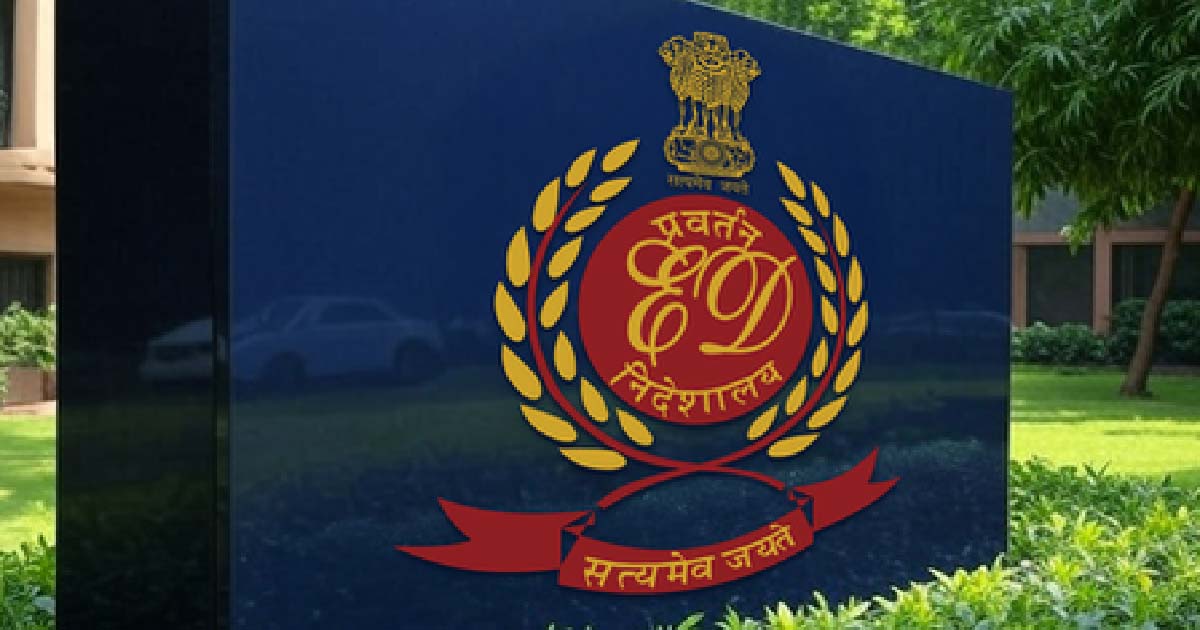National News
Congress Leader Jairam Ramesh Demands Strict Action Against Adani-Related Entities

The Congress Wednesday said a “cover-up” is in the making after reports claimed entities connected to the Adani Group have approached the SEBI seeking settlement in a case that alleges violations of public shareholding norms through unfair practices.
It asserted the “scam” requires serious punitive action, including arrests and raids by investigative agencies.
Congress general secretary in-charge communications Jairam Ramesh said a token settlement would make Indian institutions a laughing stock whose reputation has already been tarnished by the actions of Prime Minister Narendra Modi and “his cronies”.
His remarks come amid reports that several entities connected to Adani Group have approached the Securities and Exchange Board of India (SEBI) seeking settlement in a case that alleges violations of public shareholding norms through unfair practices at four listed companies of the infrastructure conglomerate.
“A cover-up is in the making. Reports that opaque offshore entities and individuals linked to the Adani Group — whose activities have been exposed by successive reports in the public domain — have offered to settle serious allegations of violations of securities laws for token amounts is a clear indicator of this,” Ramesh said in a statement.
These reportedly involve investments in four companies, Adani Enterprises, Adani Power, Adani Energy Solutions and Adani Ports and SEZ, he said.
“While any settlement would be proof of guilt, which vindicates our ‘Hum Adani Ke Hain Kaun’ campaign, it also appears to be heading towards a light slap on the wrist under the direct patronage of the PM,” the Congress general secretary said.
“The Adani Mega Scam requires serious punitive action, including arrests and raids by investigative agencies which has been the norm with all those who are not close friends and financiers of the prime minister. We urge SEBI to take the strictest action against these entities,” Ramesh said.
He further said that another reason for concern is the conflicts of interest of SEBI chairperson Madhabi Puri Buch who invested in the opaque offshore funds that have been accused of facilitating the violations of these very laws via benami investments.
“Far from resigning or being removed, she is now in a position to make a settlement with those whom she has been protecting all along,” Ramesh said.
“The violations are not simply of public shareholding norms; there is plenty of evidence that the money used to pump up Adani Group share prices was laundered by over-invoicing of thousands of crores of coal and power-equipment imports,” he alleged.
Adani-linked middlemen Chang Chung-Ling and Nasser Ali Shaban Ahli built up benami stakes of 8-14 per cent in these firms using shell companies in locations such as Mauritius, the UAE and the British Virgin Islands, he claimed.
The Congress has stepped up its attack on the Adani Group and the government after Gautam Adani, the founder chairman of the ports-to-energy conglomerate, his nephew Sagar and another key executive were charged by the US Department of Justice of being part of an alleged scheme to pay USD 265 million bribes to the Indian officials to win contracts for the supply of solar electricity that would yield USD 2 billion profit over a 20-year period.
The Adani Group has denied all allegations as baseless.
The Congress has been demanding a joint parliamentary committee probe into the Adani issue over allegations in India and abroad.
The opposition party has said that Adani’s indictment in a US court on bribery and fraud charges “vindicates” its demand for a JPC investigation into the various “scams” involving the billionaire industrialist’s conglomerate. Gandhi has sought Adani’s immediate arrest.
National News
Mumbai: Cooper Hospital Doctors Raise Alarm As Security Overhaul Leaves OPD Unprotected; MARD Warns Of Mass Leave

Mumbai, Nov 24: A sudden overhaul of the security system has created confusion among doctors at Cooper Hospital in Vile Parle after they noticed the absence of guards in the Out-Patient Department (OPD).
The hospital has witnessed several assaults on doctors in recent weeks, increasing anxiety among staff and prompting the Cooper Hospital unit of the Maharashtra Association of Resident Doctors (MARD) to raise concerns with the administration.
On November 8, three doctors were attacked by a man after a 60-year-old patient died during treatment. Shockingly, the security personnel present in the emergency ward allegedly remained passive during the incident, raising serious questions about the efficiency of the contracted security agency.
Following the incident, the BMC administration removed around 150 personnel of the outsourced agency and initiated the process to appoint a new one. It later emerged that both the old and proposed agencies were operated by the same individual under different company names.
As the appointment of a new agency will take time, the BMC temporarily deployed its own staff. About 90 personnel were pooled from various departments and assigned to Cooper Hospital. The abrupt shift led to confusion among doctors, who initially believed no security had been deployed.
Chief Security Officer Ajit Tawade said the misunderstanding has now been cleared. “Doctors were not aware that BMC security personnel had been deputed,” he said. Tawade added that 90 guards will be deployed round the clock in three shifts, with fewer staff required at night. Previously, 150 guards were posted across the hospital.
Under the revised arrangement, one guard will be assigned to each floor instead of every ward or OPD, raising concerns about reduced vigilance.
“With limited manpower, we cannot post guards in each ward or OPD. Doctors are demanding the same strength they had with the private agency. We deploy security in the same manner at Sion, KEM and other hospitals. At present, we are functioning with only 50 percent of the required strength,” Tawade said.
MARD president Dr. Chinmay Kelkar said doctors have been assured that security deployment will be gradually increased. “If there is no improvement, we will be forced to go on mass leave,” he warned.
Crime
Thane Shocker: Young Woman’s Body Found Stuffed Inside Suitcase Under Desai Khadi Bridge On Kalyan–Shil Road; Police Launch Murder Probe

Kalyan, Nov 24: A shocking incident has come to light after the body of a young woman was discovered inside a suitcase under the Desai Khadi bridge on the Kalyan–Shil Road on Monday. The gruesome finding has triggered panic and concern throughout the area, as it clearly indicates a cold-blooded murder.
According to police sources, the age of the deceased woman is estimated to be between 25 and 30 years. The body was packed inside a medium-sized suitcase and dumped beneath the bridge, suggesting that the killers deliberately chose a secluded spot to dispose of the evidence.
Prima facie, officers believe the woman was murdered before being stuffed into the suitcase and abandoned. However, the exact cause of death will be known only after the post-mortem examination.
The identity of the victim remains unknown at this stage. The police have begun checking missing women complaints from Kalyan, Dombivli, Navi Mumbai, Thane, Mumbai and surrounding regions.
Forensic experts have been called to examine the suitcase and surrounding area for fingerprints, blood traces, or any other clues that may help identify the perpetrators.
CCTV footage from nearby locations, toll plazas, and road junctions along the Kalyan–Shil corridor is also being collected and analyzed to trace the vehicle or individuals who might have transported the suitcase.
The Dyghar Police have officially launched a murder investigation and formed a special team to trace the identity of the woman and hunt down those responsible. Police have appealed to the public to contact them immediately if they have information about a missing woman matching the victim’s description.
The brutal killing has sent a wave of shock across the city, raising serious concerns about safety. Police say they are treating the case with utmost urgency and are confident of making a breakthrough soon.
Crime
J&K: ED attaches property valued at Rs 1 crore in money laundering case

Jammu, Nov 24: The Jammu Sub-Zonal Office of the Enforcement Directorate (ED) in Jammu and Kashmir said on Monday that the agency has attached immovable property worth Rs 1 crore under the Prevention of Money Laundering Act (PMLA), 2002.
A press statement by the ED said, “The Jammu Sub-Zonal Office of the Enforcement Directorate (ED) has provisionally attached immovable property worth nearly Rs 1 crore under the Prevention of Money Laundering Act (PMLA), 2002.
“The provisionally attached property comprises industrial land at Panipat, Haryana, of M/s Vidit Healthcare Private Ltd., Sirmour, Himachal Pradesh, the ED initiated investigation in respect of case registered by the Jammu NCB against M/s Vidit Healthcare (Managing Partner, Neeraj Bhatia) Niket Kansal and others for illegal diversion of a codeine-based cough syrup (CBCS), “Cocrex”, for misuse as intoxicant/drug, from manufacturer, M/s Vidit Healthcare,” the statement added.
“ED investigation revealed that M/s Vidit Healthcare supplied CBCS to entities viz. M/s S.S. Industries, M/s Kansal Industries, M/s Nouveta Pharma, M/s Kansal Pharmaceuticals and N.K Pharmaceuticals (all operated and controlled by Niket Kansal r/o Delhi) during 2018-24, to the tune of about Rs 16.74 crore. Part of such illegally diverted CBCS was supplied to Raees Ahmed Bhat, a resident of Srinagar, from whom large quantities of CBCS was seized on January 14, 2024 by NCB.”
“ED investigation further revealed that M/s Vidit Healthcare earned gross profit estimated to be nearly Rs 2.92 crore as proceeds of crime from the sale of codeine-based cough syrup (CBCS) to entities operated by Niket Kansal viz. M/s S.S. Industries, M/s Kansal Industries, M/s Nouveta Pharma, M/s Kansal Pharmaceuticals and N.K Pharmaceuticals. Earlier in this case, ED has conducted search at the premises of Neeraj Bhatia and Niket Kansal on February 13, 2025, resulting in seizure of cash amounting to Rs 32 lakh and jewellery valued at Rs 1.61 crore from the residential premises of Neeraj Bhatia and in furtherance of investigations, ED has further attached immovable property in the form of land at Panipat of M/s Vidit Healthcare, worth nearly Rs one crore.”
“Further investigation is underway,” the statement said.
-

 Crime3 years ago
Crime3 years agoClass 10 student jumps to death in Jaipur
-

 Maharashtra1 year ago
Maharashtra1 year agoMumbai Local Train Update: Central Railway’s New Timetable Comes Into Effect; Check Full List Of Revised Timings & Stations
-

 Maharashtra1 year ago
Maharashtra1 year agoMumbai To Go Toll-Free Tonight! Maharashtra Govt Announces Complete Toll Waiver For Light Motor Vehicles At All 5 Entry Points Of City
-

 Maharashtra1 year ago
Maharashtra1 year agoFalse photo of Imtiaz Jaleel’s rally, exposing the fooling conspiracy
-

 National News1 year ago
National News1 year agoMinistry of Railways rolls out Special Drive 4.0 with focus on digitisation, cleanliness, inclusiveness and grievance redressal
-

 Maharashtra1 year ago
Maharashtra1 year agoMaharashtra Elections 2024: Mumbai Metro & BEST Services Extended Till Midnight On Voting Day
-

 National News1 year ago
National News1 year agoJ&K: 4 Jawans Killed, 28 Injured After Bus Carrying BSF Personnel For Poll Duty Falls Into Gorge In Budgam; Terrifying Visuals Surface
-

 Crime1 year ago
Crime1 year agoBaba Siddique Murder: Mumbai Police Unable To Get Lawrence Bishnoi Custody Due To Home Ministry Order, Says Report












